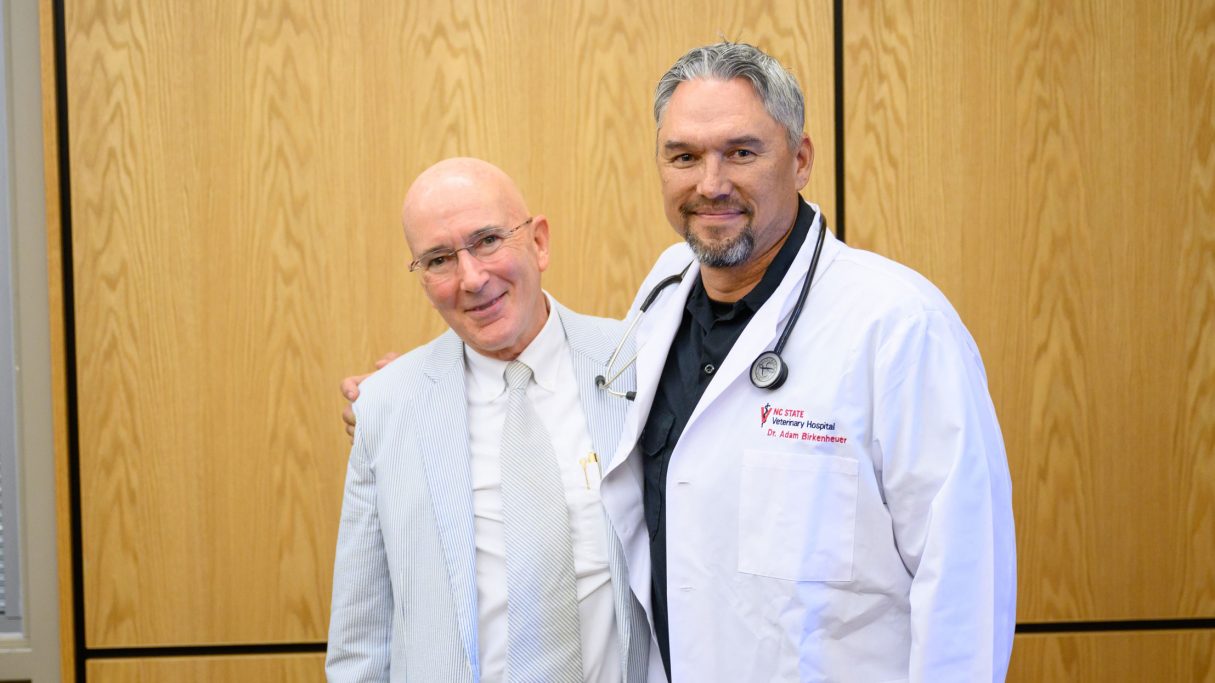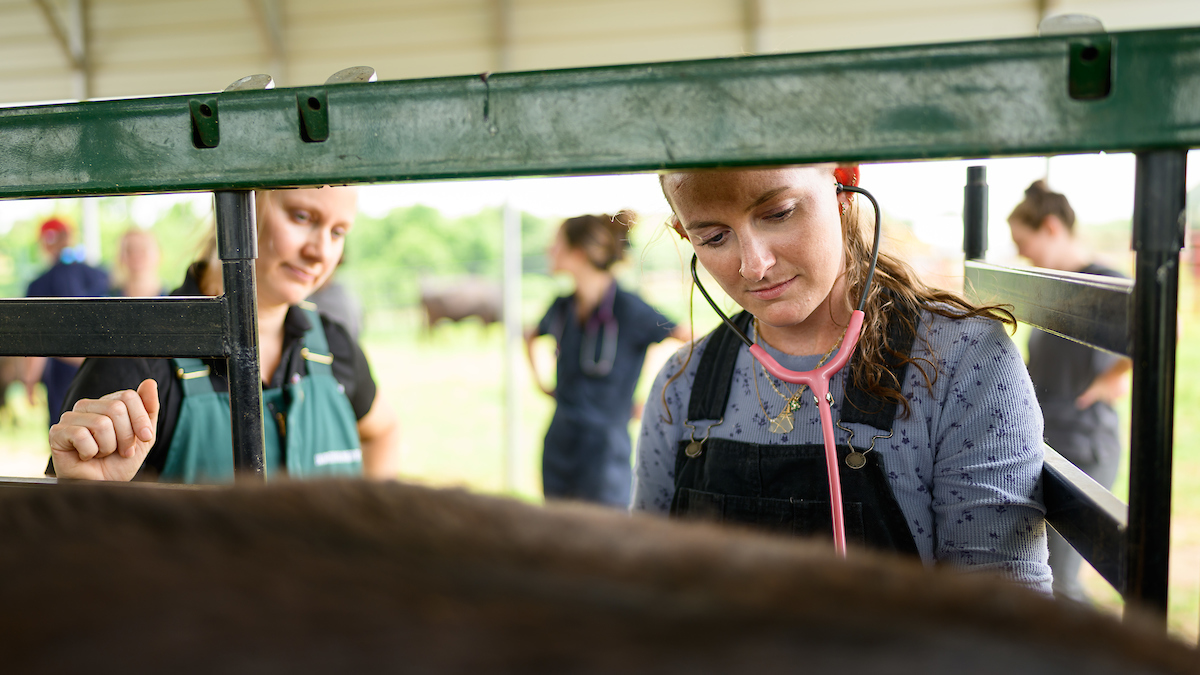Seaks Never Forgets a Friend

Terry Seaks describes the NC State College of Veterinary Medicine as, “a place where miracles happen.”
He’s felt this way for 25 years, since he and his late wife, Jane, brought their cat, Fluffy, to the NC State Veterinary Hospital, hoping to find a cure for Fluffy’s persistent dermatological problem. He tells how a clinician came up with an ingenious solution to the problem involving the use of a human allergy medication.
That marked the start of a beautiful friendship between the Seaks family and the CVM.
Since then, several of Seaks’ cats have been treated at NC State. Seaks, a University of North Carolina at Greensboro economics professor emeritus, has served on the North Carolina Veterinary Medical Foundation’s board of directors. He has endowed a pair of scholarships and a professorship, the Jane Lewis Seaks Distinguished Professorship for Companion Animal Medicine established in 2007. He even comforts friends who have lost a pet by memorializing the animals with inscribed bricks on the CVM campus’ Walk of Honor.
Seaks has also honored three members of the CVM community with a Coat of Excellence, a way for grateful clients to honor a faculty clinician, intern, resident or support staff member who provide especially meaningful, compassionate care. The $10,000 donation supports veterinary hospital services.
In June, he presented his fourth — a white lab coat embroidered with the name of the honoree and the animal they helped — to Adam Birkenheuer, professor of internal medicine. Birkenheuer is an internationally recognized expert on vector-borne infections of dogs and cats, most commonly spread by fleas, ticks and lice. That is, diseases like bartonella and babeseosis, the latter a previously unrecognized canine disease discovered by Birkenheuer.

Seaks called Birkenheuer’s recognition long overdue. In 1997, another Seaks family cat, Snowball, mysteriously began to lose weight. Normally weighing 13 pounds, the cat was wasting away, losing 4 pounds, a more than 30% drop. That would be as if a 150-pound person lost 45 pounds for no known reason.
When tests revealed possible kidney problems, there was serious consideration of doing a biopsy to confirm the suspicion.
“Fortunately,” Seaks said, “that’s when Adam Birkenheuer got involved.”
Noting that the biopsy would be a dangerous procedure given Snowball’s weakened condition, Birkenheuer advised against it, suggesting other causes be explored first.
The problem turned out to be an unusual amino acid deficiency, and Snowball was almost in heart failure. A kidney biopsy could have been devastating. By administering digitalis and a dietary supplement, Snowball was returned to full health and lived eight more years to age 16.
Seaks credits Birkenheuer with paying a central role in putting Snowball’s treatment on the right track, an experience that helped solidify his long relationship with the CVM.
Birkenheuer thanked Seaks, not only for the Coat of Excellence, but for his long friendship and CVM support.
“There is no greater honor in our profession than to be recognized by the people who love and care for our pet patients.” ~Adam Birkenheuer
“In my 20-plus years working at NC State, Dr. Seaks is one of my all-time favorite clients because of his sincere love and dedication to his cats. I am humbled by his recognition.”
Part of the Coat of Excellence program involves an honorarium for the recipient and for the recipient’s department. Both Birkenheuer and Lizette Hardie, head of the Department of Clinical Sciences and professor of general surgery, donated the funds to the Companion Animal Research Endowment: Infectious Disease, or the CARE: ID Fund.
The goal for the CARE: ID Fund is to raise at least $1 million that will provide support for research into the causes, methods of diagnosis and better treatment for a host of infectious diseases. Birkenheuer strongly believes that endowments hold the key to a more effective approach to research.
The sustainable nature of endowments like this allows investigators to focus on curing diseases,” wrote Birkenheuer when he established the CARE: ID Fund. “Research is a marathon, not a sprint.”
Support for the Coat of Excellence program involves a donation of $10,000 to the North Carolina Veterinary Medical Foundation, and not only honors an individual, it increases the resources that can be used to enhance the health and quality of life for the animals who come to the NC State Veterinary Hospital. More information about the program can be found here.
~Steve Volstad/NC State Veterinary Medicine
- Categories:


